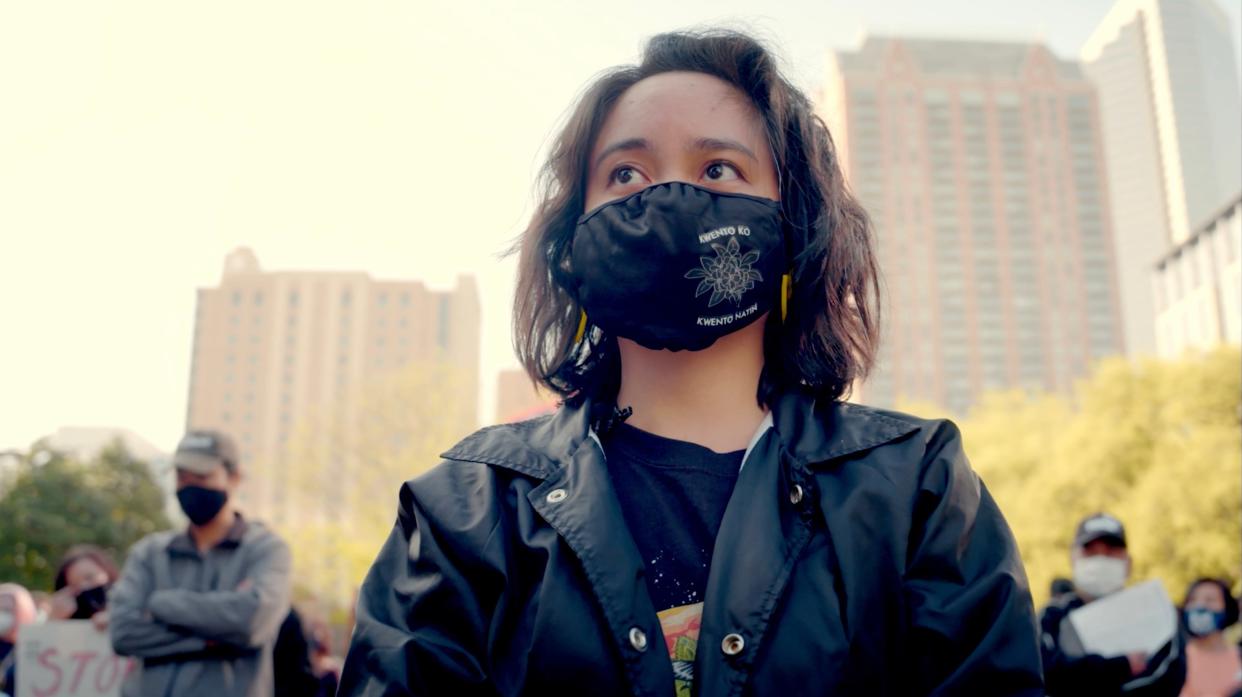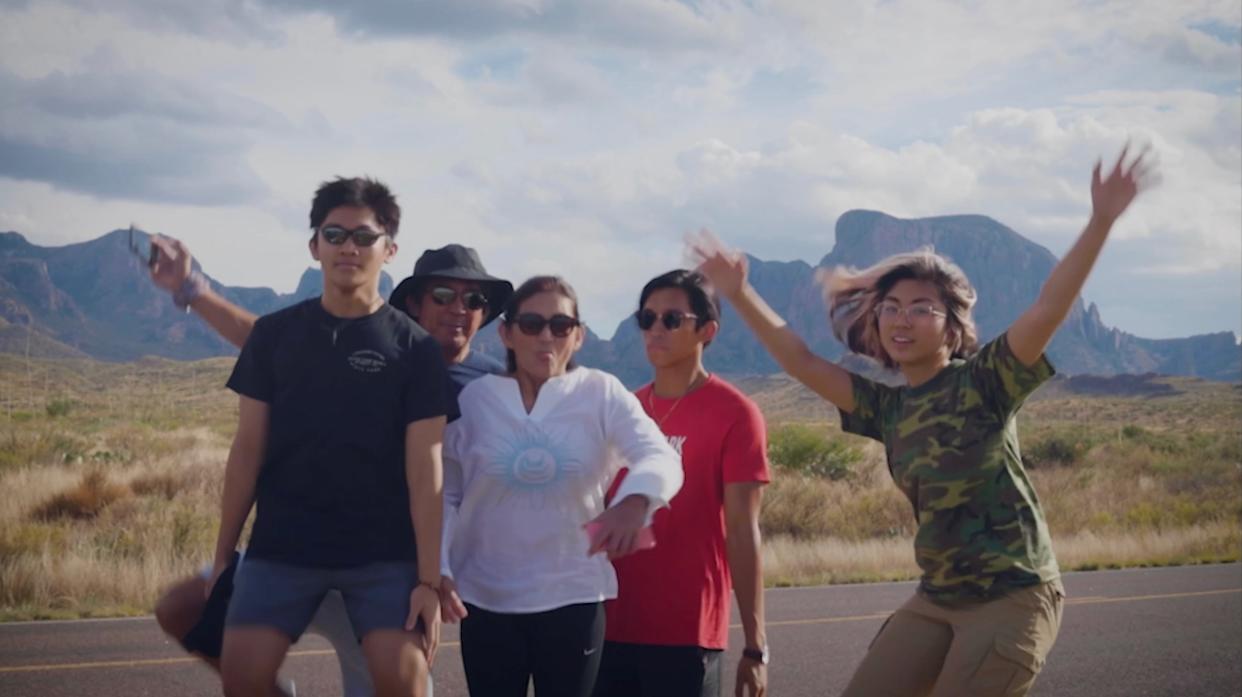Austin filmmaker documents 3 young Filipino Texan women as they evolve in new Netflix doc

Recently, veteran Austin movie-maker PJ Raval has taken audiences into the worlds of a murdered transgender woman in the Philippines ("Call Her Ganda"); three senior gay men ("Before You Know It"); and a Chinese-American college student who turns into a charismatic anti-gun violence leader ("Come and Take It").
This short list barely scratches the surface of his work. Starting in the year 2000, Raval has been credited as producer on more than 25 films, as director on more than 30, and as cinematographer on more than 40.
Raval's movies regularly compete at the most prestigious film festivals and have won dozens of important awards. He teaches film at the University of Texas.
‘Vultures of Tibet’: UT grad explores natural history and cultural ritual in award-winning documentary
In his most recent documentary, "Who We Become," he follows three young Filipino American women in Texas as they navigate the COVID-19 pandemic, along with waves of tension and closeness with their families, and their involvement in social justice causes.
"Who We Become" can be streamed on Netflix. On Jan. 11, it can be viewed on big screen at the AFS Cinema.
Luckily, Raval is generous with questions about his moviemaking.
American-Statesman: Something of a technical question: So much of the story of the three young Filipino women is told through various digital devices. This strategy was likely necessary because of the pandemic, but also they form intimate — and unfailingly familiar — personal frames for each scene. Since your action starts in the spring of 2020, how were all the recordings from camera phones, texts, social media, etc. coordinated from a distance?
PJ Raval: When I first approached each of the protagonists about participating in the project, we engaged in extensive conversations about what was going on in their lives, what was on their minds, what the relationships with their families were like, what kind of interactions they were having or anticipating — and from there we determined some potential things to film and how best to do it.
More: A look at the political documentaries of UT’s Paul Stekler
I even created almost like assignment sheets on things for them to think about and look out for, and ideas of what to film and how to physically capture footage and where to upload it to, etc. We had regular check-ins throughout the process so it was refreshingly collaborative. I was also interested in the various modes of storytelling.
How did you choose Lauren, Monica and Jenah? At different ages, they are going through parallel but differing (and loving) struggles with the older members of their families, while exploring the wider world of social justice. The pandemic, Black Lives Matter and the rise of anti-Asian hate crimes were things that Americans experienced in real time, but Lauren, Monica and Jenah seemed especially ready to respond to these larger trends — and on screen.
When I had the idea to make this film, myself and my producer Cecilia R. Mejia started reaching out to Filipino American community members privately inquiring who might be interested in exploring this idea. Thankfully, I already knew Lauren and Monica and after our initial conversations they were game to try it out and excited about the possibilities.
Cecilia had met Jenah previously and introduced me. With COVID-19 emerging, we were living through unprecedented times, and I knew collectively we were all entering a period of extreme change and uncertainty and that would bring about moments of growth, learning, self-reflection and transformation.
'For the Record': See a film that documents the last days of one rural Texas newspaper
So when thinking about who to start following, I was interested in individuals whose lives were also at these moments of change and growth. With Lauren, whose story focuses upon her graduation (from UT), it's quite clear she’s entering a new phase of life — graduating into complete uncertainty. But it’s also recognizing your adulthood and perhaps understanding your parents as adults as well with their own histories and experiences that shape who they are.

With Monica, it was about recognizing the differences of perspectives with close loved ones and understanding what you value, and how you can choose to turn those values into action despite these differences.
'And Still We Rise': Exhibit at Galveston's new Juneteenth museum tells powerful history
With Jenah as a former nurse turned community organizer and artist, self-reflecting and thinking about the path of how you got to where you are and where do you want to go from here?
All three of our protagonists were entering or experiencing what I would call coming-of-age moments. As someone older than them, I recognize these moments having gone through similar things myself, and knew these would make for compelling stories to share.
You don’t make a big deal about it, but these are not just Filipino Americans, but Filipino Texans from different parts of the state. What tied their experiences together for you?
In recent years, I’ve started to really understand the idea of thinking globally and acting locally. There are so many compelling stories in one’s own community and perhaps that allows for deeper insight and greater access also knowing their importance. I know I have a unique opportunity to capture them.
I’m also deeply aware of the lack of representation of Filipino stories in the mainstream U.S. media landscape. So it was important to me to look at Filipino Americans in Texas which aligns with my own current experience and could give the world greater insight into the Filipino diasporic experience and how we also contribute to and perhaps even help transform the makeup of Texas.
Watch our documentary: 'Existing as transgender in Texas'
Collectively, though we live in different cities and might be of different ages, we’ve had similar experiences. And perhaps giving an audience a way to see these experiences together make us understand a larger universal experience through these commonalities and differences. We all deal with generational and cultural differences. But how we live through them and how it shapes us can inspire us to understand ourselves in a new light.

The last part of the film emphasizes the values of close families, communities and, in terms of social justice, allies. Was this a conclusion that you were prepared to make, or did it happen organically as you put together the movie?
The film was largely inspired by the concept of “kapwa” which is a Tagalog or Filipino word that can loosely — but not perfectly — translate into English as “togetherness” or “shared identity” — “community.”
For me, that idea of an unbreakable bond that binds Filipinos together is really beautiful — it’s like the feeling of “I see you.” And that bond exists despite differences in age, gender, culture, or even having an ocean in between.
More: Ben Masters imagines what 'Planet Earth' would look like if filmed in Texas
Filipinos generally extend that concept of “kapwa” beyond family to friends and neighbors — the general community. Here in the U.S., I do think the experience of being a child of immigrants, being a person of color, being a member of the LGBTQ+ community, I have felt moments of exclusion and even hate — and that, too, is an experience that also binds us together which also paves the road for allyship.
But, as Jenah’s close friend Rachel says in the film, “You can’t walk alongside someone unless you know where you’re walking from.” So it’s important for all of us to understand our own stories and communities before we start to think about how we relate to each other in their own struggles.
Every movie of yours has opened my eyes to new worlds, sometimes things right under my nose. How can you tell something like this subject is going to land like that for audiences?
What is exciting about nonfiction and documentary filmmaking is that it is unpredictable. It’s an adventure, and we don’t always know what will happen and where it will lead us.
'Triumphs to the fact that we exist': Austin celebrates LGBTQ stories in film at aGLIFF
But one thing I can count on is we each hold stories of when we’ve been challenged, have failed, or triumphed — survived when we almost gave up. These highs and lows and coming of age moments is what makes us human, and we all go through them.
I’d like to believe if we all pay closer attention we’d see we all have important stories that we can learn from — you don’t have to be Taylor Swift or Beyoncé to be on screen! I continue to be fascinated about everyday life — which is a good thing since it keeps unfolding for me too.
This article originally appeared on Austin American-Statesman: 'Who We Become' Netflix documentary follows Filipino Texan women
